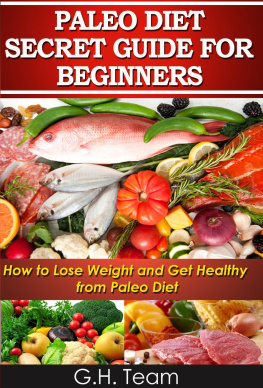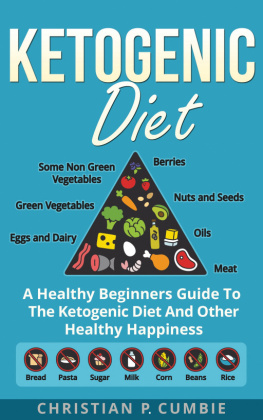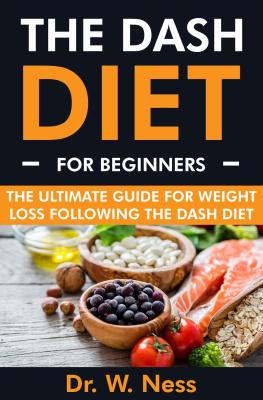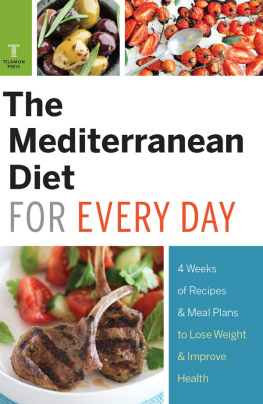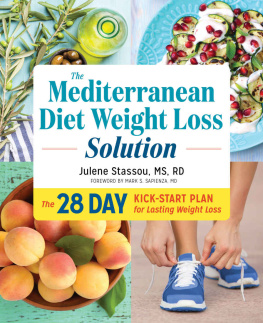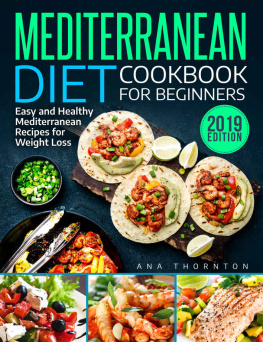Table of Contents
Diet Plans
The Best One For You
DAWN YOUNG
Copyright 2013 Dawn Young
All rights reserved.
Introduction
This book is about two popular diet plans, the Mediterranean Diet and the Paleo Diet. Both diets are a part of the dieting trends that people are trying these days. Lifestyles are super busy and this creates the need for diets that help to ease into weight loss rather than hinder it. If a diet is too hard, people tend to give up quicker. Which diet plan is right for you depends on your current dieting habits and depends on what you wish to accomplish through dieting. The number one benefit of both of these diets is the development of healthy lifestyle habits.
One section of the book covers the Mediterranean Diet. One thing this diet helps is to provide foods that are a delight to eat, foods and recipes that taste good. This diet works on weight loss but also on improving the health, giving a well-rounded healthy dieting routine. The Mediterranean Diet allows for a wide choice of vegetables and proteins that help to boost the immune system. This diet may be a current trend, but has withstood as a popular diet for well over several millennium. It became popular in the West in the mid 1900's.
Learning the key foods in the Mediterranean Diet helps to make the meal plans. The diet stems from people living in the Mediterranean region throughout Europe. Studies show the diets of these people tend to be healthier; they are able to maintain good weight levels and suffer with less health ailments than those of us who do not eat their particular foods. The diet is rich in vegetables and fruits, which contain high levels of anti-oxidants and are naturally low in fat. The foods includes artichokes, oranges, grapes, lemons, figs, eggplants, beans and legumes, seafood, olives, whole grains, cheeses and yogurts, and herbs like garlic, oregano and basil.
Developing healthy habits is one of the main benefits of going on the Mediterranean Diet. They believe though that a healthy lifestyle is more than just diet. Healthy lifestyle habits go beyond the foods we eat. In addition to maintaining a healthy diet you are encouraged to also get adequate sun daily if possible. The sun also provides a vital nutrient, vitamin D. Also encouraged is exercise. The Mediterranean way of life includes a healthy social life, being around others, laughing and loving.
Did you know the Mediterranean Diet also offers medical benefits? One of the amazing factors of the people in the Mediterranean region are their low cardiovascular disease statistics. The Mediterranean Diet does help to make the heart healthy thus lowering the instances of heart issues. People in this region have longer lives as a result. If we look at their diet, we will see one high in dietary fiber and the fats are the healthy monounsaturated fats like that in olive oil. Ironically, the Mediterranean Diet is higher in salt, but perhaps because the right foods are consumed, the salt does not have ill effects on the body.
A section gives dieting and wellness tips to help with keeping and maintaining the Mediterranean Diet. Most are common sense suggestions, but these are suggestions used successfully by the people in the Mediterranean region. By encouraging these healthy tips it makes for a positive lifestyle change that hopefully once the ideal weight is reached you will continue with the healthy habits such as choosing fruit for a snack instead of reaching for junk food. There are even tips on how to grocery shop optimally. You may find tips you were not aware of such as sucking on ice cubes to curve hunger pangs.
The next diet covered in this book is the Paleo Diet. This is also an ancient diet used by people for many thousands of years. The name comes from the Stone Age or the Palaeolithic Age. This is not your typical diet fad, as its roots go deeper than even the most popular diets of today. The main feature of the diet is the fact that the tribal people from the Stone Age were thin and healthy. They did not have the same ailments we do today caused from bad diet habits and bad habits altogether.
The number one benefit of the Paleo Diet is the high fiber content of the food. The foods are naturally high in fiber like vegetables, therefore they help to keep the digestive system clean, and it helps to keep the body healthier by scrubbing out impurities that would otherwise stick to the intestinal walls. The premise of the Paleo Diet is in consuming all natural foods, whole foods, vegetables, fruits and healthy cuts of lean meats, especially fish. This diet gives us all the nutrients we need to build a strong immune system and this works to keep us from getting sick.
Here is a sampling of the foods allowed on the Paleo Diet: beef, veal, chicken, pork, seafood, venison, alligator, bison, deer, rabbit, pheasant, turkey, boar, goal, rattlesnake, emu, and caribou for the meats. All vegetables and fruit are included as well as the seed oils of olive, avocado, palm, coconut, almond, walnut, pecan, macadamia and hazelnut. Foods like grains are not a part of the Paleo Diet, nor are sugars, dairy, and legumes. Of course, all processed foods are to be avoided. When consuming milk, they recommend coconut milk. And for snacks and desserts they recommend fruit and nuts.
Both men and women benefit from the Mediterranean Diet and the Paleo Diet. Each diet is designed to help jumpstart the weight loss and aids in the development of the healthy eating habits that will become just that, a healthy habit. Each diet helps to lose weight at a steady healthy pace, starting with the jumpstart that helps to lose a little more in the beginning. Then as they advance, foods are added back, weight loss continues and finally maintained. Other diet plans may help to lose a lot of weight fast, but the weight piles back on even faster.
Section 1: Mediterranean Diet
Mediterranean Diet Introduction
Every solid weight loss plan requires increased attention on the foods you eat. But the contents of your diet, however healthy, cannot provide wellness if one fails to remember to structure their lifestyle accordingly. If you want to lose weight, finding solid information is the key to this step. That information can help you achieve the best mindset to reach your goals.
If the extremes of modern day fringe diets impose too great a demand upon your palate, it may perhaps be beneficial to look backwards in time for more natural and traditional diet based health solutions.
Whether your objective is to lose weight or eliminate a chronic health condition, more and more people nowadays are turning to the Mediterranean diet as a means to improve their overall wellness. Providing a delectable variety of proteins, vegetables, and favorite recipes dating back thousands of years, a Mediterranean diet is one, which can enable you a healthier lifestyle while still providing delicious meals.
It doesnt just taste delicious; its good for you too. The Mediterranean diet first came to the attention of the west in the mid 20th century when studies showed that people living in Southern Europe, where most recipes share much in common, not only had much longer life expectancy, but were comparatively free of chronic conditions such as heart attacks and hypertension compared to their northern neighbors.
It was perhaps a bit over-hyped a few decades ago when it was hailed, due to some misinterpreted facts in early studies, as a veritable fountain of longevity based on dietary factors alone. For example, at the time of the initial studies, the majority of Southern Europeans were still engaged in agricultural labor, and with private car ownership as well as public transport (in most areas) hard to come by, the people walked pretty much everywhere they went. Additionally, they didn't take notice of the more favorable work-life balance common in Mediterranean cultures, the early studies failed to report that an active lifestyle was part of the answer to why Southern Europeans lived longer, healthier lives. Despite this, its a truism that no diet, however salubrious, is going to be of much benefit without an active lifestyle.




